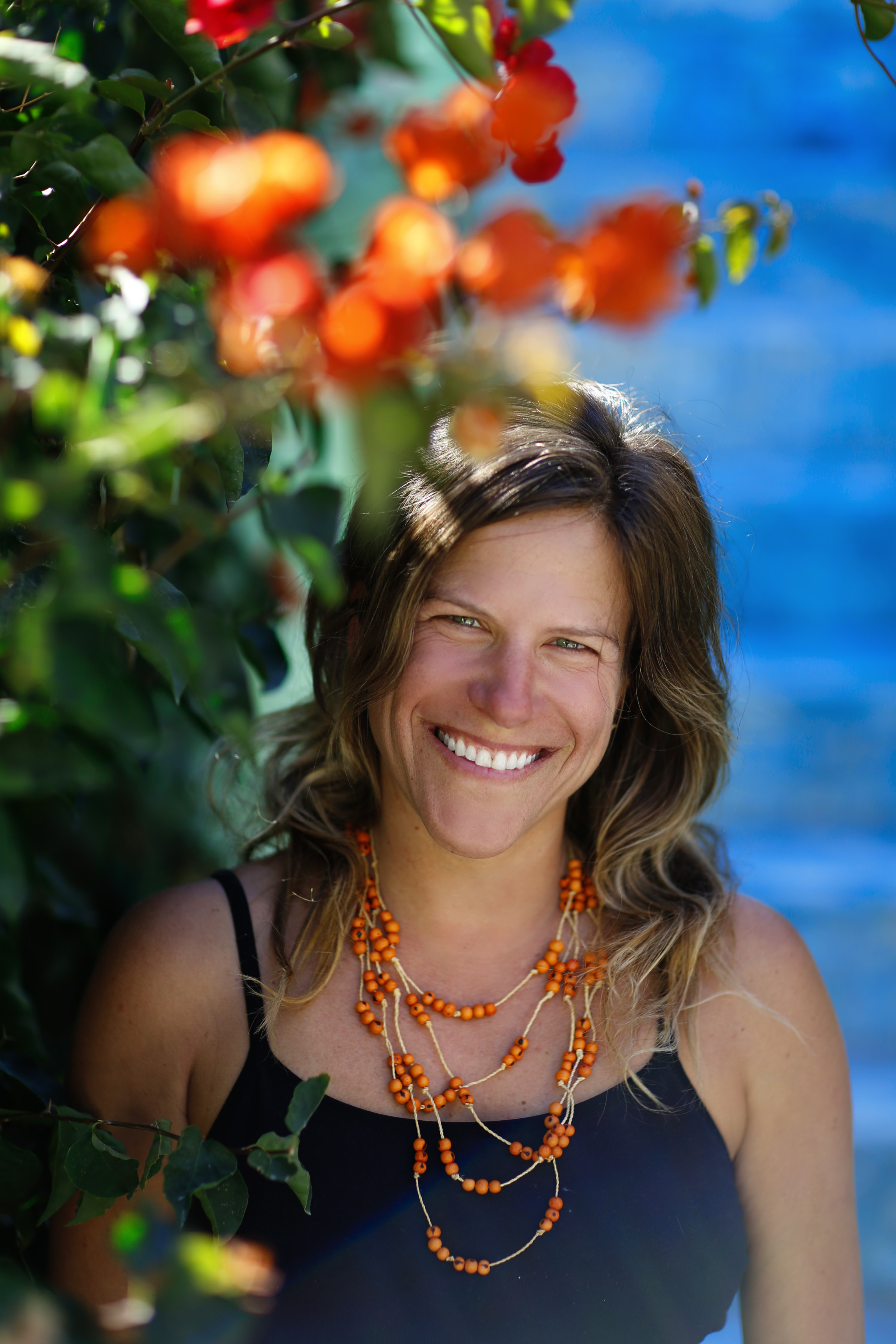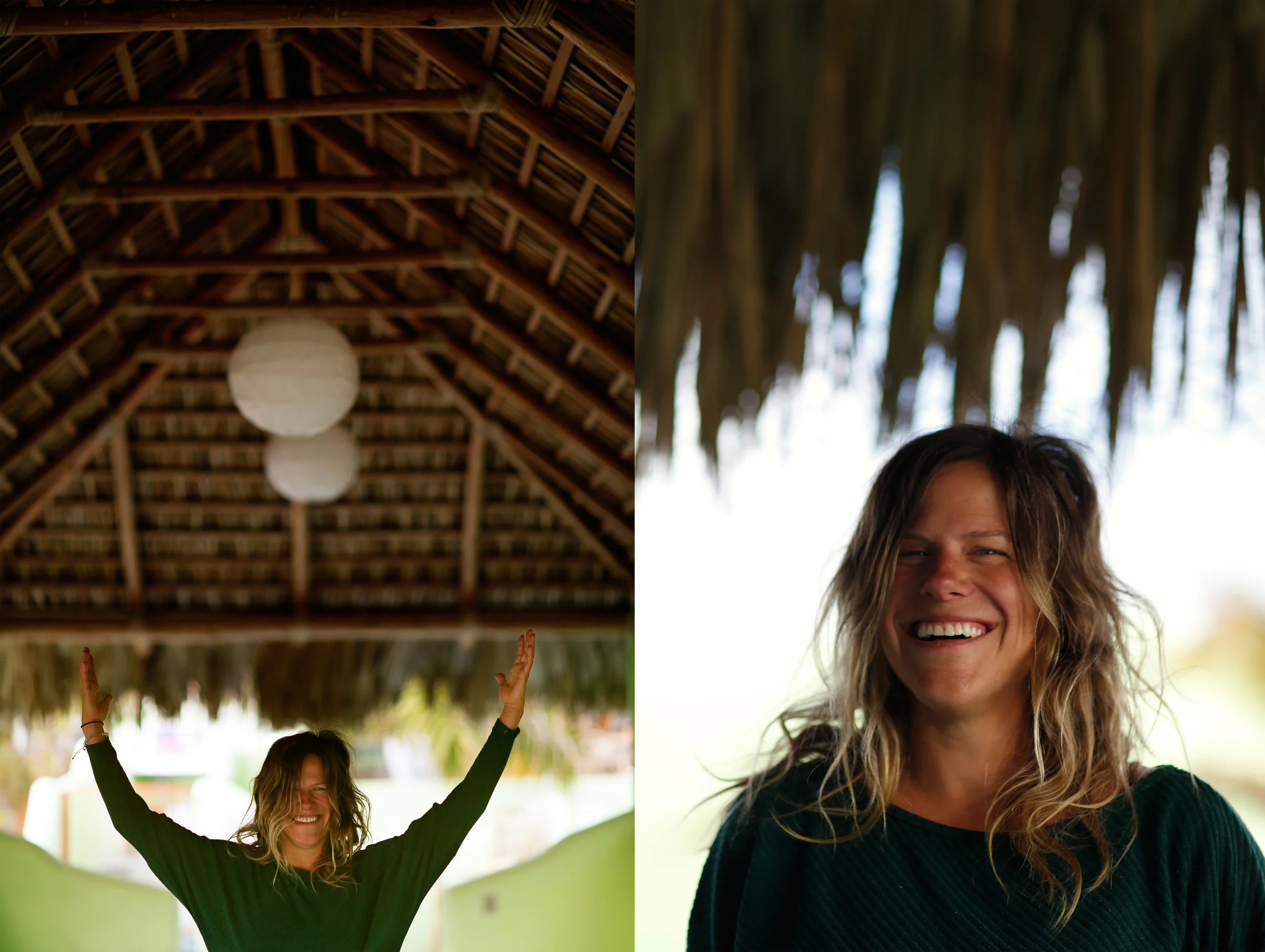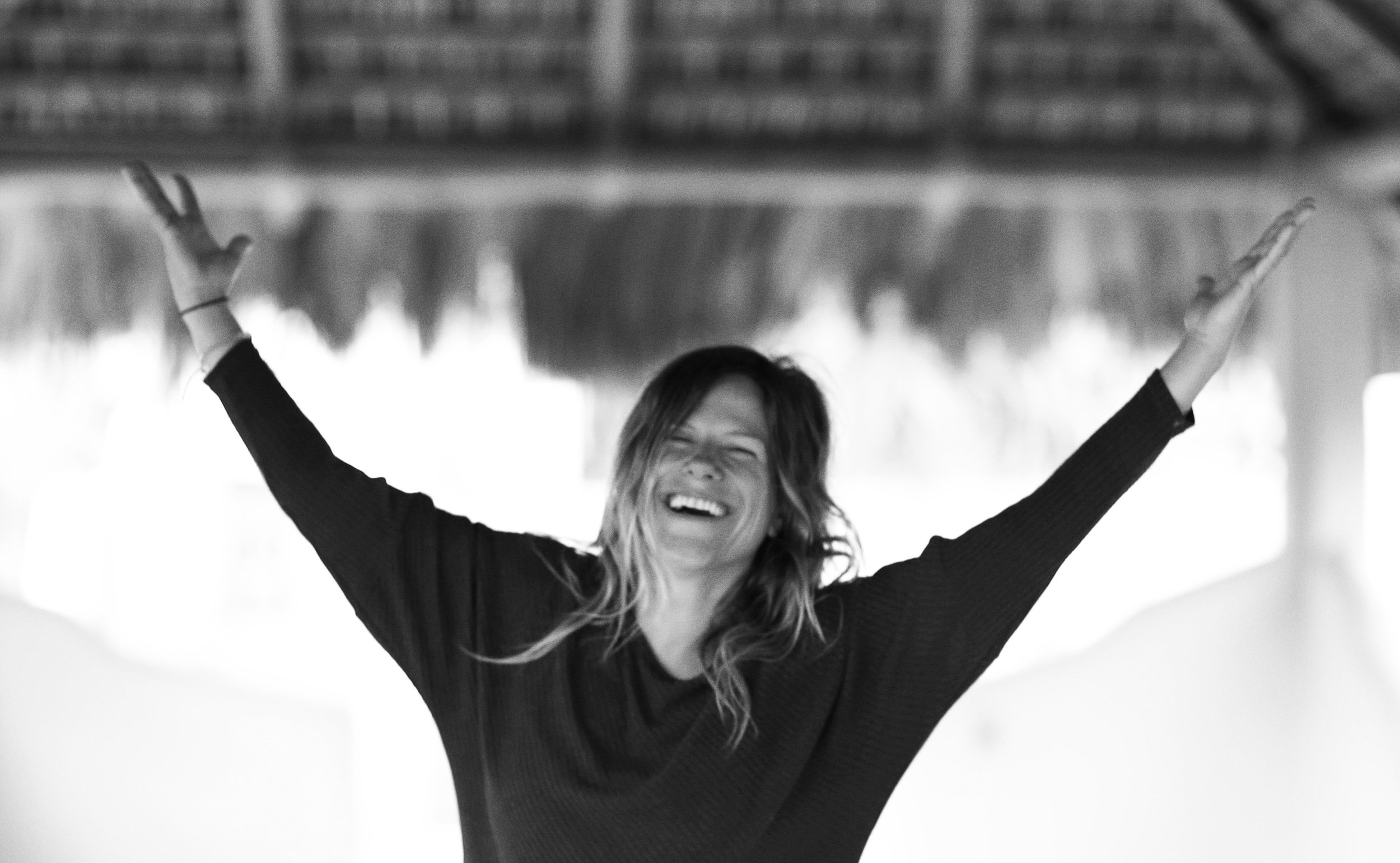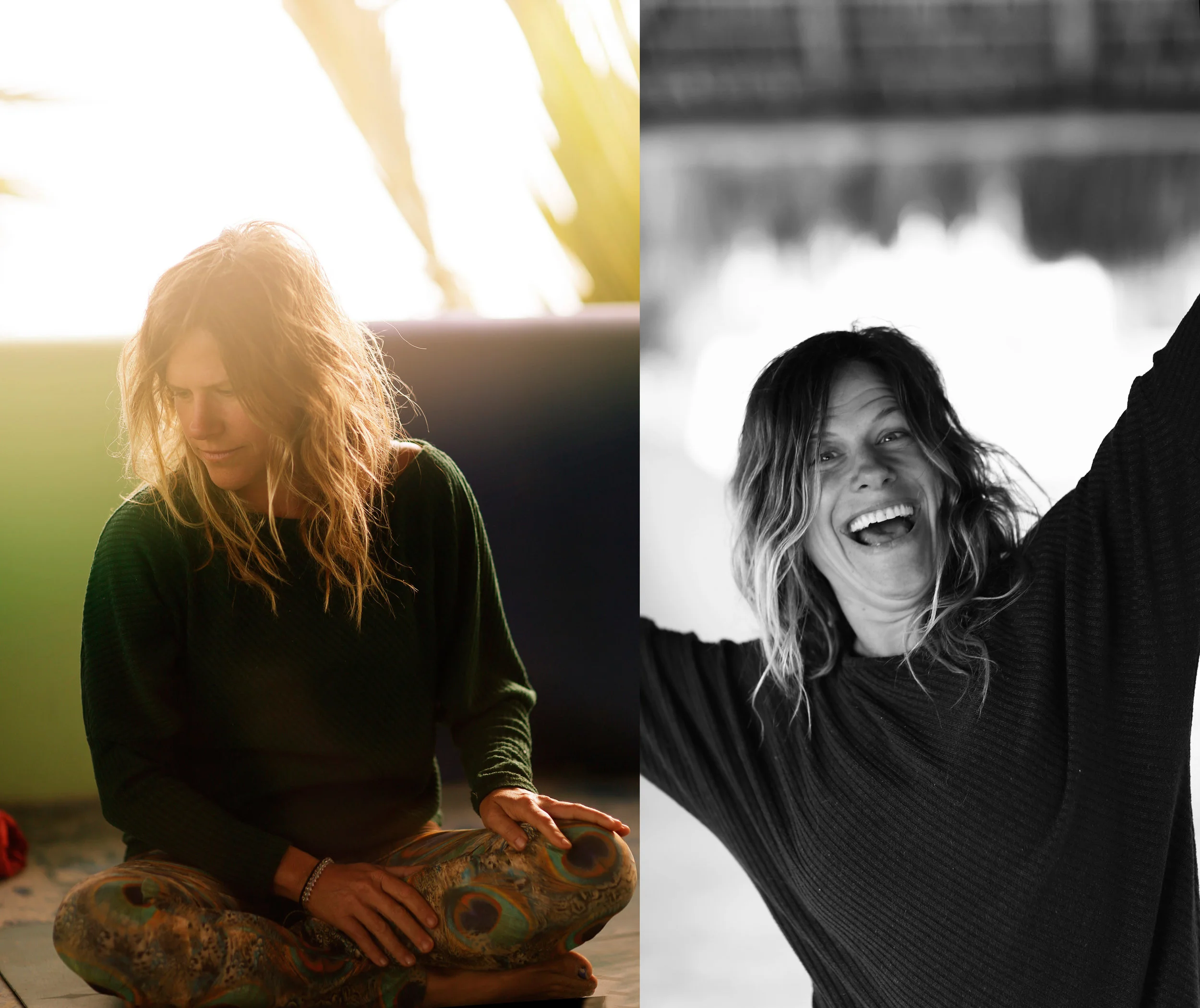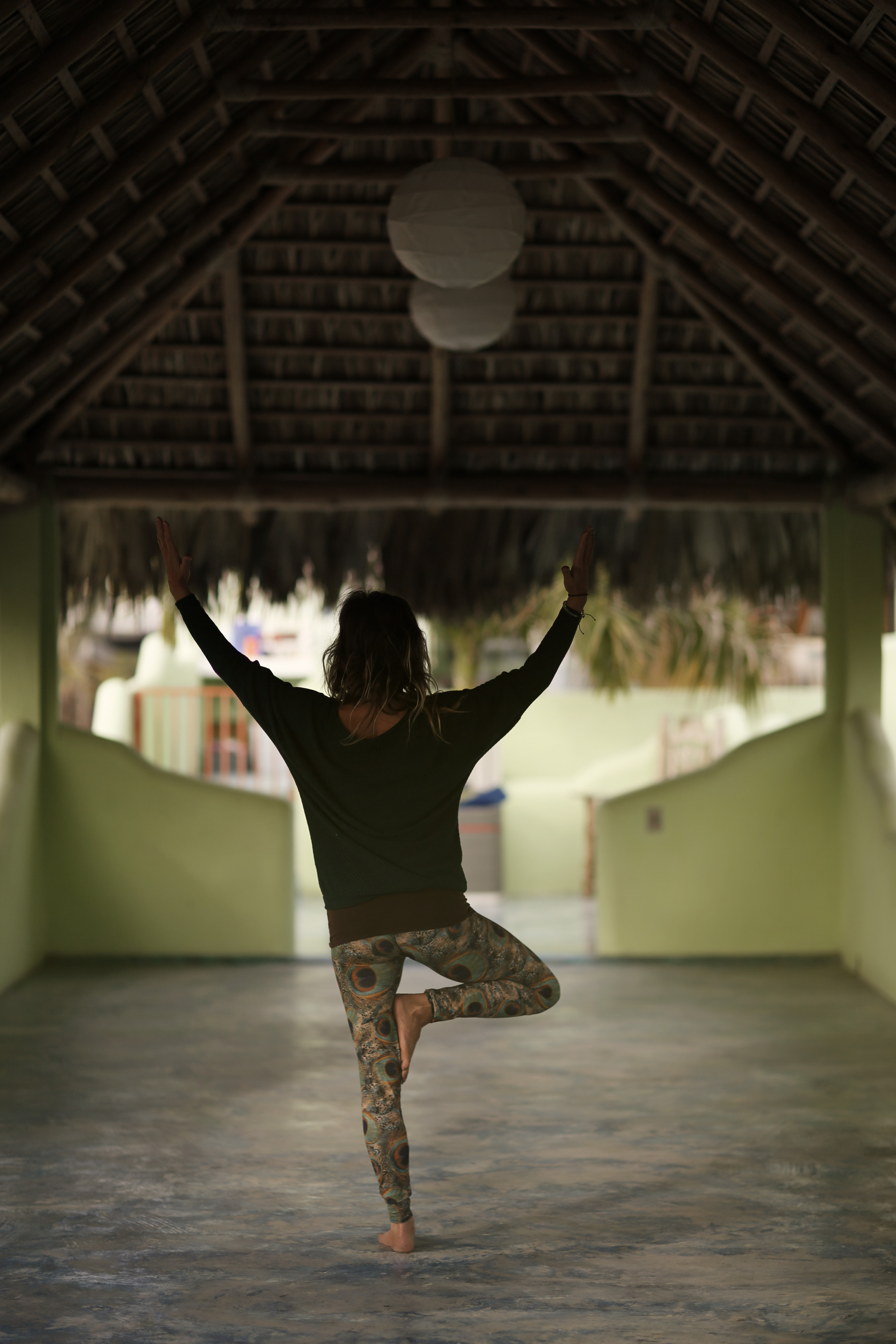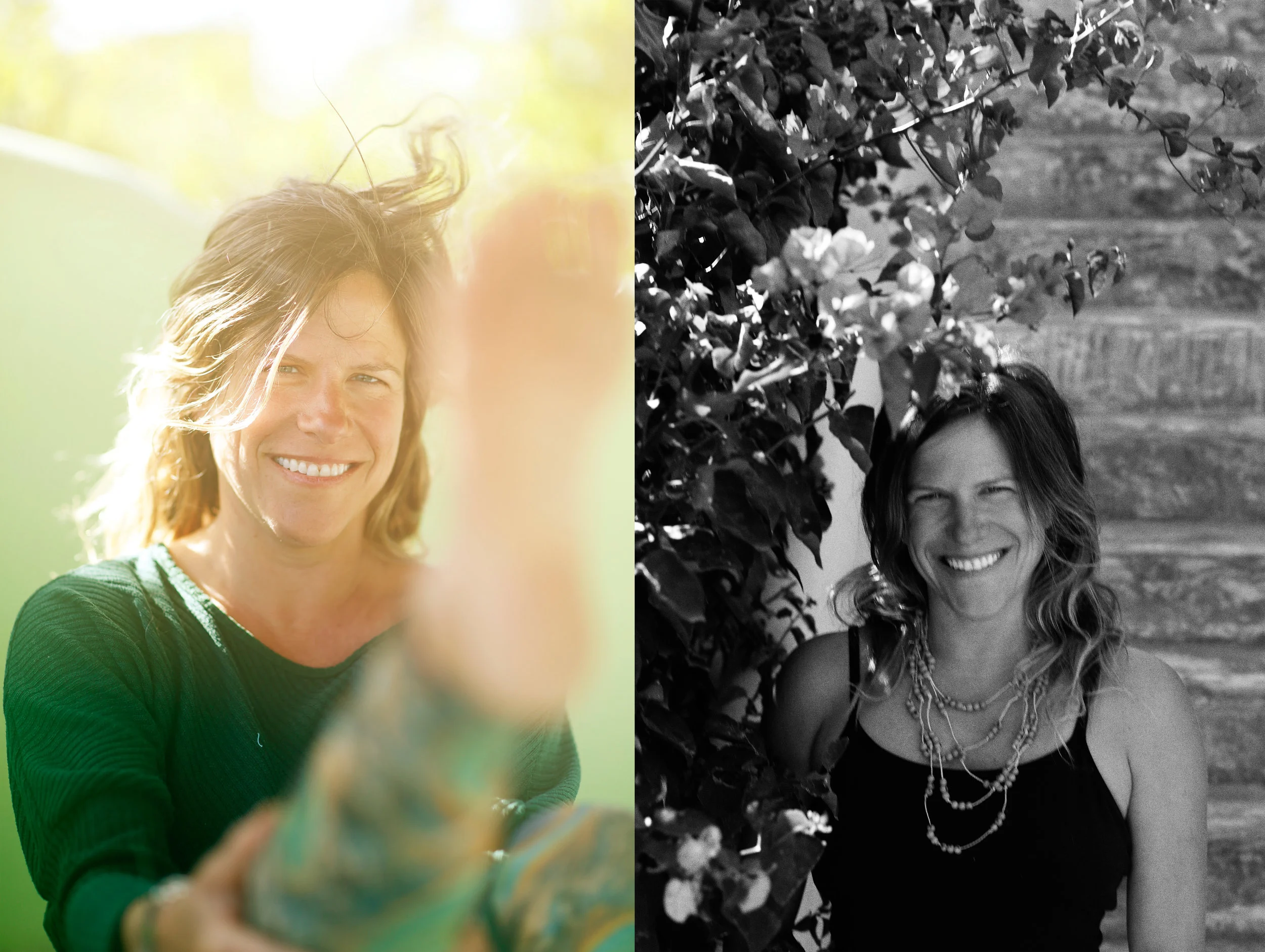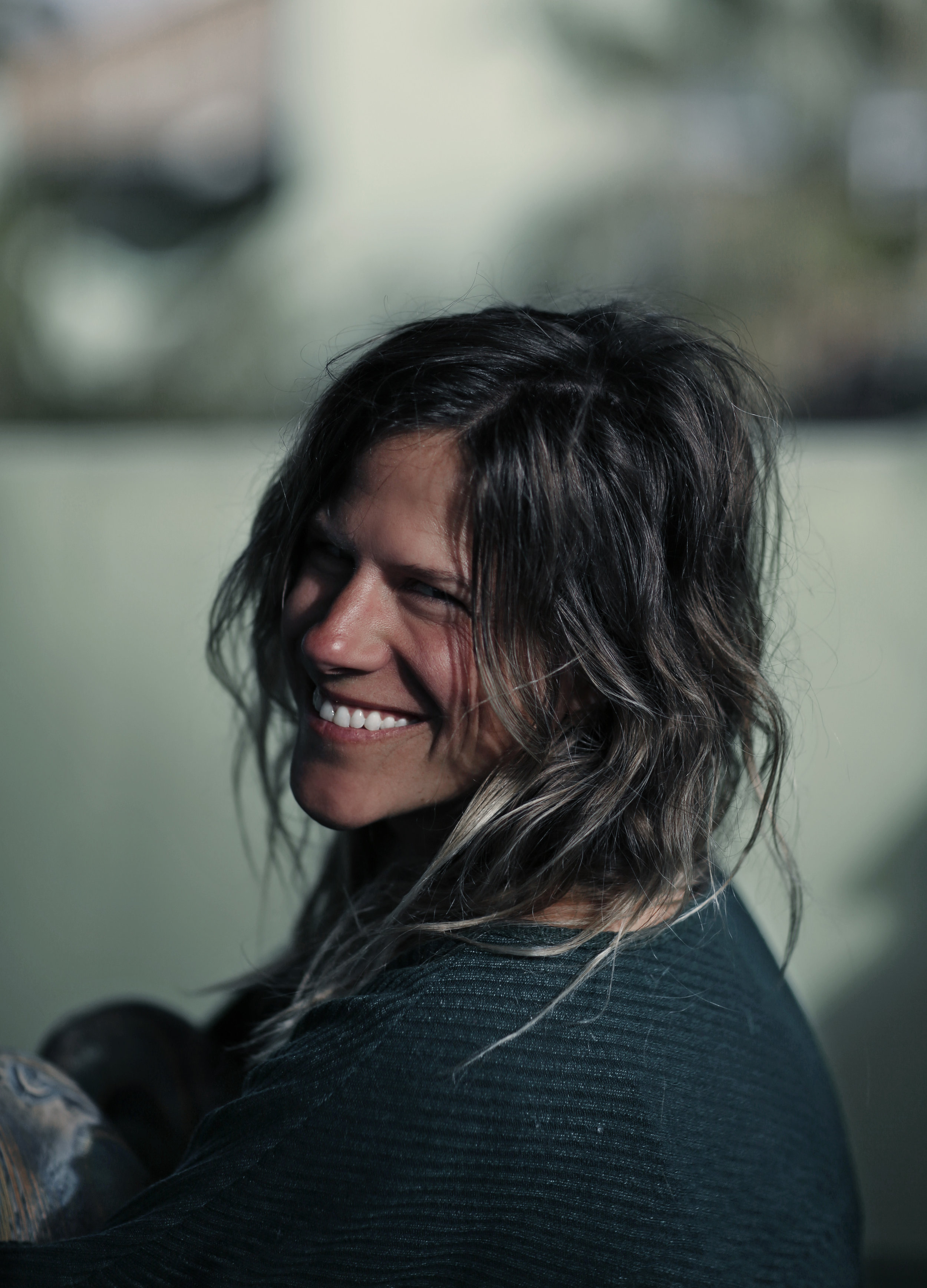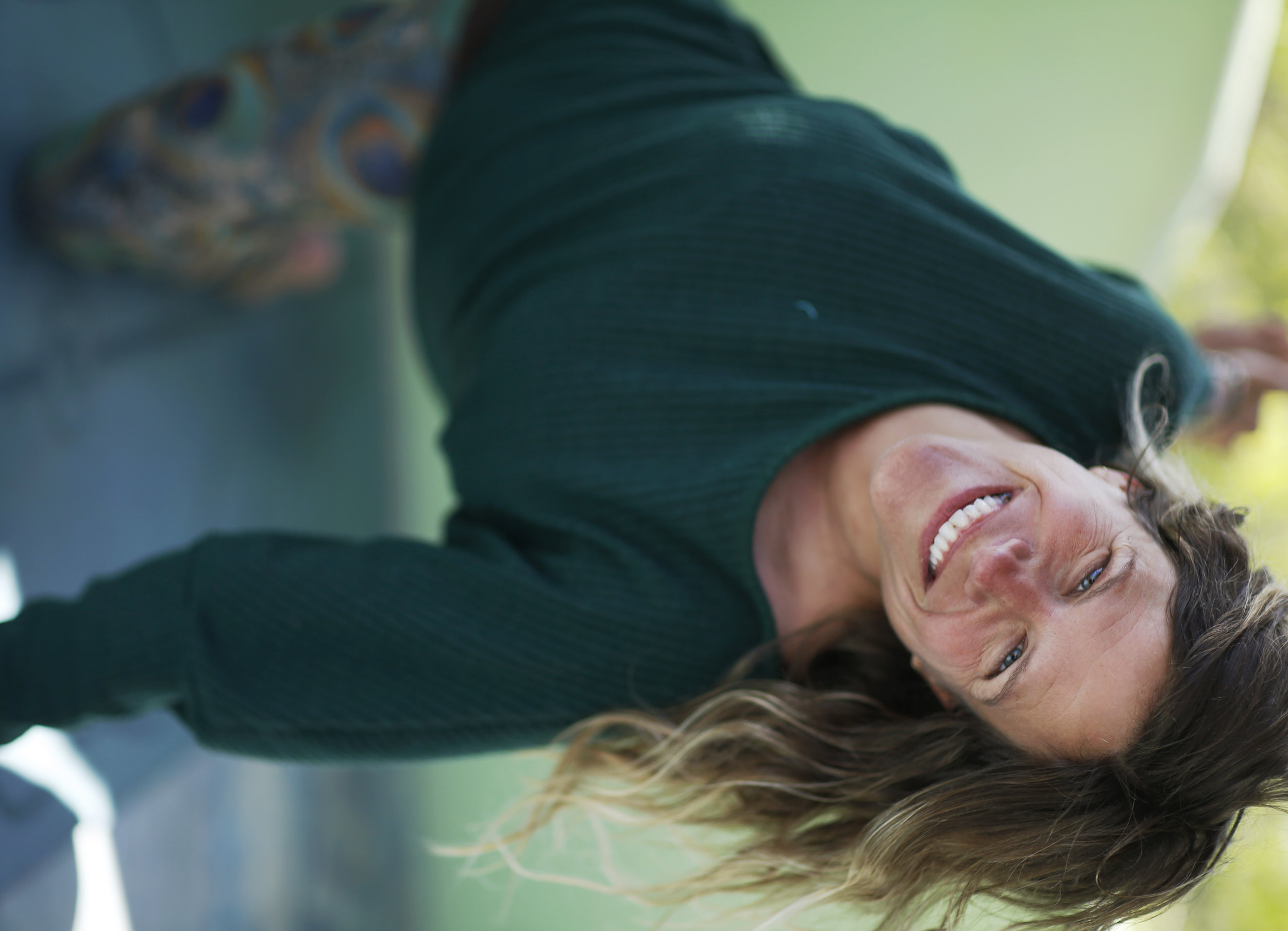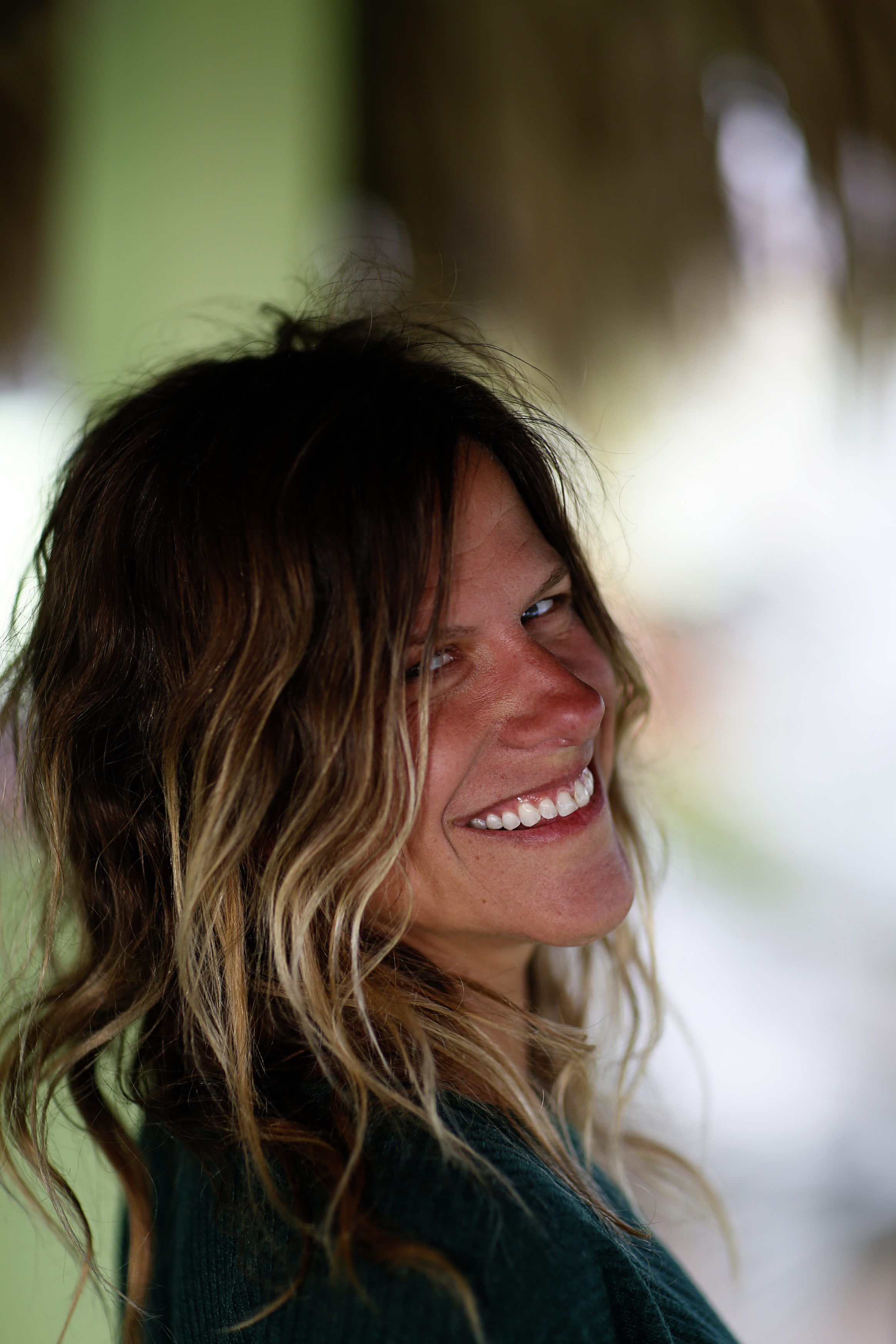Pain Doctor, Seeker, Writer, Entrepreneur, Yogi, Kiteboarder, La Ventana, Mexico
Have you ever met a friend who you know will be a gift that keeps on giving? After meeting Tracy, I immediately fell in love with her spirit, her writing, and met a friend of hers, another WOW Woman. I have a feeling more is to come. Thoughtful friends are hard to find - the ones who truly make you pause and take a long hard look at your life (for better or worse).
I first met Tracy in La Ventana, Mexico on a windy Baja Peninsula. She was my yoga teacher with a charming accent (later placed to Nashville), a sun-kissed kiteboarder with a mischievous smile and a groovy spirit. I soon clued-in that there was more going on there, that our yoga sessions were focused on releasing pain, masterfully avoiding tweaks and strengthening areas that would prevent future injuries. This specific attention, coupled with a knowledge of muscle groups and fascia targeting, gave me a glimpse into who this funky chick was in another life, and her road from Vanderbilt pain clinic to TED talks to a yoga mat in Mexico. Most importantly, doctor shmoctor aside, I love her taste in music, that Nashville influence, and southern charm.
1. Name.
Tracy Jackson.
2. Where is your hometown?
Washington, NC. Currently La Ventana, Mexico. Six months ago, I sold my house and gave away most of my belongings to simplify my life. I’m so incredibly grateful to be on the road with no fixed abode and no plans to find one.
3. What is your profession/career/title/self-label/designation?
Seeker. Writer. Entrepreneur. Integrative healing guide. Yogi. Gypsy. Kiteboarder. Pain and Addiction MD.
4. What was the journey like to get where you are (in life and career-wise)?
I have always found school relatively easy, so I sort of mindlessly followed the path of least resistance on to the next standardized test. Every few years, I would become bored or disenchanted and take what I felt to be a rebellious detour – like a year as a waitress/ski bum after deciding to leave general surgery residency. But in general, I toed the typical US doctor line: I was top of my class and chief resident at the University of North Carolina; fellowship-trained at Stanford; became triple-boarded in anesthesiology, pain and addiction medicine; and was an associate professor at Vanderbilt until August 2018. Disconcertingly, despite my expertise, my patients didn’t seem to get better when focusing, as I was taught, on which pill or procedure might quickly fix them. In my quest for more effective options, I became a RYT-200 yoga instructor, got additional certification in acupuncture, and started seeing patients at the Osher Center for Integrative Medicine, where I am now remotely training to become a certified health coach.
It all changed in 2016 when I did a TEDx talk called “The Hardest Pill to Swallow,” highlighting what I saw to be the tragedy of US health care with regard to pain and addiction, while offering a more evidence-based, holistic route forward. In hindsight, I think going public with my views gave me the accountability I needed to leave what I knew was a lucrative but ultimately unethical career path, given all I had learned after leaving traditional medical training.
The following year, I put my money where my mouth had been and invested a ton of personal resources to start a 6-month integrative healing program for chronic pain called Relief Retreats (www.reliefretreats.com); shortly thereafter I left academia and set out for the unknown. I’ve also become co-founder and CMO of Forsana, which creates tech solutions to increase accessibility of evidence-based options for treatment of chronic pain, and am a consultant for Bright Heart Health (www.brighthearthealth.com), which uses telemedicine to treat patients with opioid use disorder. I most recently agreed to work with a company called Revive (www.workrevived.com), which provides support for “adventurepreneurs” to prioritize travel, adventure, community, work, wellness and philanthropy around the world. I’m writing a book proposal. I’m toying with a documentary. None of these is generating any income at the moment, but the passion to seek and create more effective, affordable, and accessible options for those with chronic pain and addiction is driving my somewhat reluctant entrepreneurship. And because I have so little overhead now, I get to just hang out in different cheap, exotic places around the world, kiteboarding while I figure it out. I have never been more personally and professionally satisfied in my life.
5. What are some accomplishments you’re most proud of, and what was the turning point to set you on a current path in life?
I am most proud of doing that first Relief Retreat. They say you create what you need in the world, and I think that was true for me. Twelve patients – all strangers to each other - went out to at Gray Bear Lodge in Hohenwald Tennessee with me, a psychologist, and a physical therapist for two weeks, followed by 6 months of weekly online health coaching from their homes. No one had any idea what an integrative “functional rehabilitation program” could really mean for any of us. As evidenced by a whole host of scientific metrics, the retreat turned out to mean an awful lot: Opioid use was eliminated for most; function, sleep, mood, disability, and quality of life significantly improved; and health care utilization was reduced. More importantly, I witnessed the power of nature, community, empathy, connection, nutrition, movement, art, music, and vulnerability on healing. The skills I taught, learned, and practiced from that retreat still enhance my life in extraordinary ways, and propel me in purpose for those I may encounter in the future. After that retreat, there was no way I could ever go back to my life the way it was.
6. What did you study in school?
See above. I am a lifelong learner through and through. I love the quote from “The Once and Future King” by T.H. White: “The best thing for being sad," replied Merlin, beginning to puff and blow, "is to learn something. That's the only thing that never fails. You may grow old and trembling in your anatomies, you may lie awake at night listening to the disorder of your veins, you may miss your only love, you may see the world about you devastated by evil lunatics or know your honour trampled in the sewers of baser minds. There is only one thing for it then — to learn. Learn why the world wags and what wags it. That is the only thing which the mind can never exhaust, never alienate, never be tortured by, never fear or distrust, and never dream of regretting. Learning is the only thing for you. Look what a lot of things there are to learn.”
7. How is your life different from what you pictured at 20?
I had what I now realize to be an unusually idyllic childhood in a small, Southern conservative American town and was identified as the “smart one” very early on. I don’t think it ever crossed my mind to become anything other than doctor or a lawyer; a graduate of the University of North Carolina; and an eventual wife and mother. I can’t really pinpoint when that all went off the rails, so to speak, but I suspect it sparked during my “gap year.” I started college with a year of transfer credits; my parents told me I could either drag out college for a 4th year, or they would pay for me to travel for a year before medical school. When the time came, at age 20, I chose the farthest spot I could find: New Zealand.
I had only been on a plane one time before and had never been out of the country. I had a Lonely Planet, a backpack, and a sense of profound excitement. I had no real fixed itinerary other than a summer research internship in Christchurch. That adventure altered the trajectory of my life: Traveling solo, I met SO many people and had SO many epic experiences I would never have had were I to be sitting in Auckland with my friends from the US talking about our lives back home. I met local people on the plane who gave me a car and took me into their home and sailed me all around the North Island. I met a shepherd who took me on a 2-week working home stay on his sheep farm. I spent a lot of time in hostels and met backpackers from around the world who shared all sorts of firsts with me: They bungee jumped and went skydiving and hiked glaciers and swam with dolphins and skied on volcanoes and kayaked fjords alongside me, all while sharing their different cultural and global perspectives.
The OJ Simpson trial was ongoing and I remember being SHOCKED at how ridiculous that intersection of justice, race and celebrity was perceived to be by non-Americans. And it had never occurred to me, for instance, that Thanksgiving was not a holiday in other parts of the world – until I cooked turkey for a jolly group of Kiwis who sat down with me and spoke of the imperialist genocide it seemed to celebrate to the rest of the world. I was rapidly disabused of my American exceptionalism on that trip, right as I was learning it even existed. Yet I found I could still love and be grateful for my country without having to blindly accept its marketed superiority as fact. I began to see myself as part of a more global community.
I could never have predicted the way solo travel continues to transform my life. It has been one of the greatest gifts I continue to give myself with regularity. It has broadened my perspective, challenged my beliefs, increased my empathy, strengthened my social skills, improved my confidence in my ability to handle new and different situations, and resulted in a veritable tapestry of interwoven connections with fascinating folks all over the world. Sitting here alone in Mexico, 25 years after my trip to New Zealand, I still feel that same sense of excitement. Anything can happen.
8. Was there a time when life knocked you down or out and how did you get back up on your feet?
I have experienced grief and loss and hardship, although I have had more than my fair share of privilege and good fortune as well. I will say that even before understanding the robust science supporting gratitude, I have always felt an incredibly strong sense of wonder and awe just to be alive. I do think that makes a difference in my outlook and my life.
9. Advice for other women?
I’ve always suspected that advice reveals more about the giver than it helps the receiver. Or, as a good friend once told me, “Advice is what you ask for when you already know the answer but don’t want to believe it.” The best advice for me has been the sort that rumbles up and resonates from within me when no one else is paying attention.
10. Knowing what we know now in current political climate, can women be "all that we can be" in today's world? What is the way forward, as you see it, for "feminist values"?
The concept of feminist activism feels strange to me and is a topic I have publicly avoided for some time. Bottom line: I haven’t felt like I have ever had to really fight for my civil rights. And because I currently feel I am all I dreamed of being and more, I know it is possible. My biggest challenge now is to confront my profound privilege and its many blind spots and associated guilt.
Of course, I have been inaccurately assumed to be a nurse a thousand times; however, even today as a female physician, I automatically find myself asking patients “What’s his name?” when they tell me about their other doctors. I get how deeply embedded and often subtle are these notions of gender roles with regard to career and family; I notice how significantly they have changed in my grandmother’s lifetime; I don’t necessarily see historical gender roles as uniformly negative or demeaning to females; I grew up seeing a lot of women who are incredibly smart, talented, empowered and satisfied in their roles as “only” a wife and/or mother; and I generally (and effectively) followed the “kill more flies with honey than vinegar” approach to misogyny. I have also been unlawfully terminated when I refused romantic overtures from a boss, and there have been too many examples to count of inappropriate language and behavior from male supervisors and peers throughout my medical career. Yet I have emerged relatively unbothered and unscathed.
I also am becoming acutely aware that this is the very definition of privilege: Because of where and when and to whom I was born, into an upper-middle class educated white American family in the 70s, my most deeply held lifelong “identity” as smart has always been able to be culturally manifested in the way I had hoped. More importantly, this identity has been respected and encouraged from an early age - by my mother and father and brother, and the vast majority of my male and female peers and friends. I am also a heterosexual who has never been a victim of gender violence or abuse; has never known poverty; has always had ready social “connections” for networking and job opportunities; gotten equal pay for her work; can choose – and has chosen - to forego marriage and kids without cultural excommunication; has the freedom to live and travel independently; and can freely express my opinion publicly without fear of retribution.
I hold incredible, overarching, ever present gratitude for all the women who came before me and sacrificed to make those statements from me even conceivable, and know that with my privilege comes responsibility to speak up and pay it forward for those who do not have this luxury. And I know I don’t (yet) do that as effectively as I could. Stay tuned.
11. Where in the world do you feel “tallest” (i.e. where is your happy place)?
Somewhere off the beaten path, shooting the shit with my friends, preferably in an outdoor hot tub with a beautiful view and some soulful music after a day doing something active and out of my comfort zone.
12. What extra-curricular activities/hobbies are you most proud of? Why?
Kiteboarding. My narrative has always been that I am not an athletic sort; and even if I dabbled in kayaking or climbing or biking, I always tended to do activities that mirrored my current love interest. Finally, at age 43, I decided to try kiteboarding, just because I thought it looked fun and no one else I knew was really into it, especially women. I also loved the fact that people of all levels could kite in the same conditions on the same beach – and that so many people over the age of 60 were still ripping - so it could theoretically be a good group travel activity for the long term. I am currently living in La Ventana just because I wanted to go somewhere I could really prioritize kiting and progress. It has been revolutionary to prioritize my day around physical activity and play and nature instead of around work and meals and responsibility. It has changed everything in my life for the better. I feel strong, I feel vulnerable, I feel challenged, I feel badass. I am more proud of the fact I can “mow the lawn” back and forth on my kiteboard (and ride a little bit on my toe side and do some tiny jumps) than I have ever been from any academic honor.
I chalk this up to a compelling theory I once read in an article called “The Trouble with Bright Girls.” It postulates that “bright girls [who were praised early and often for things in which they excelled without effort] believe that their abilities are innate and unchangeable, while bright boys [who were often unruly and got a lot of feedback that they would excel if they would just focus or work harder] believe that they can develop ability through effort and practice.” Therefore, “when learning something new is truly difficult, girls take it as sign that they aren't ‘good’ and ‘smart,’ and boys take it as a sign to pay attention and try harder.” Kiting is the first thing I have tried that has required a TON of effort and practice and challenges my narrative about what I can innately accomplish. And I will never have “arrived;” there is no A+ or gold star. This is the same way I feel about the “practice” of yoga. I was so conditioned in my youth to strive for the perfect outcome; it is so incredibly liberating at this phase in my life to let myself be absorbed in the moment and for that to be enough.
13. What do you want to be when you grow up? Future goals/challenges?
I did a blog about values and how important it had been in my life to explicitly identify and incorporate the core two. Mine are learning (which I define as “external seeking”) and authenticity (or “internal seeking”). Since I am constantly seeking new experiences and new ways to approach my life - as the means and the end - I find the concept of a future vision completely baffling. By definition, I have absolutely zero idea where I will be when I grow up or which challenges I might face, and that thought is THRILLING to me. Any other possibility seems like a trap that doesn’t allow room for me to flow and grow.
14. What fears are you still hoping to overcome?
This reminds me of a saying I heard somewhere once and use during my retreats: “Anxiety/fear is like living in the wreckage of your future when the car hasn’t left the garage.” I try to give fear its due as an evolutionary signal to remind me to pay attention, but I try not to attach it to some imaginary terrible outcome. It’s a process.
15. Anything you'd do differently, if you had another go at life?
No. I’ve had two experiences where I thought I might die. One was a brief cancer scare and the other was from terrible dysentery in very remote Guatemala with no available medical care. Both times, I realized the same two things: 1. I am not the sort that feels an overwhelming urge to “fight” when faced when death and 2. I truly believe I live like I’m dying already. I’m satisfied with my life.
16. What inspires you?
People who color outside the lines. I’ve always been drawn to folks with dreadlocks and sleeve tattoos and very visible manifestations that they are willing to put their uniquity front and center, no matter how it might be perceived. Of course, it transcends physical expression: Artists, activists - really anyone who is openly vulnerable and risks the wrath of bucking societal norms - has my respect and attention. That kind of committed passion is intoxicating to me.
17. What are you hopeful about?
Virtually everything, to some extent. I’m generally very comfortable with uncertainty and make a concerted effort to see both sides of the story. I strongly believe seeming opposites like hope/fear, joy/despair, pleasure/pain, yin/yang, good/bad and life/death to be different sides of the same coin, with a very thin veil separating them indeed. I do tend strongly to optimism, while appreciating the necessity and even beauty in its converse.
18. What are some ingredients to a good life?
This is such a personal, relative thing and I think boils down to what you value. For me, right now: Autonomy. Flexibility. Adventure. Connection. Teaching. Learning. Getting physical outdoors. Writing. And simplicity…the less material stuff the much, much better.
19. What is a quality you most love about yourself and why?
I have worked very hard to be a person that I understand, love, and respect, independent of anyone or anything else. I think this constant self-examination and resulting self-awareness also enhances my ability to make meaningful authentic connections: When I present my full, vulnerable, flawed self to others, I know that those who choose my company like me for the real me, and not some curated version of me. Another benefit is I rarely feel lonely; even when I’m by myself, I know the capacity for connection will always be there. It’s very comforting.
20. What advice would you give your 14-year-old self?
Show up, pay attention, tell the truth, let go of the outcome.
21. What are you reading now? (what books do you gift most and what are your favourite reads?)
I read a ton yet retain almost nothing about the books long term. I love the journey while reading and then tend to take the essence and leave the details behind. I am especially fond of authors who use language in lyrical, musical, mystical, and evocative ways: Tom Robbins, Toni Morrison, and Frank McCourt stand out to me in this regard. And I love the poetry of Edna St. Vincent Millay. In terms of non-fiction work and writing that resonates and strongly informs my own, anything by Brene Brown is a revelation.
22. Who is a WOW Woman in your world who inspires you and why? Can you nominate three (or more) women you know who perfectly fit WOW WOMAN description? What would you tell them if you had an opportunity, of why you admire them?
1. Sarah Coomer – author of “Lightness of Body and Mind: A Radical Approach to Weight and Wellness” and “Physical Disobedience: An Unruly Guide to Health and Stamina for the Modern Feminist”. Inspiring women the world over to see their bodies as vehicles for empowered action. Social justice warrior, diet abolitionist, personal trainer, dog lover, feminist, mother. Raw, real, unflinching in her visionary advocacy.
2. Abigail Caudle – Breast surgical oncologist and internationally recognized surgeon and researcher at MD Anderson Cancer Center. Restaurant owner. Patron of the arts. Foodie. The model of ethical ambition and leadership: Driven, reliable, fair, humble, compassionate, grounded in faith and family.
3. Cathy Carl – Facebook Consultant; Prior CMO of a large international company in the male-dominated field of advertising; COO of a large Burning Man Camp sparking transcendent experiences. Heart-centered, empowering leadership. Models strength in excruciating vulnerability. Fierce personal expression. Collector of art and experiences. Radical friendship.
4. Julia Hoge is definitely a WOW Woman. She is a master public middle school counselor; maker of safe and heart-forward spaces in schools, homes, families and communities; self-awareness activist; joyful creator and consumer of song, dance, music, conversation, laughter and life.
23. Where can others find you/your work (links to websites, blogs, etc.)?

